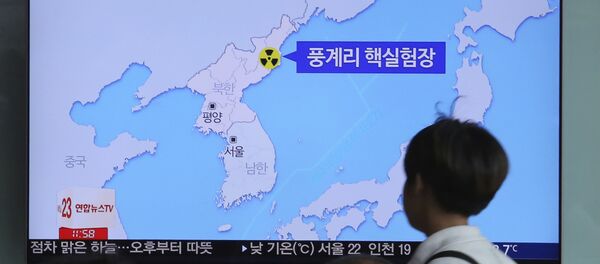Kim was reportedly crying over being unable to improve his country's economy, according to the defector.
The video is said to have surfaced in April and was possibly an official message from Kim to the Workers Party — the country's ruling party.
North Korea had already been negotiating a possible meeting with the United States by the time the video surfaced. In April, Kim was making the rounds abroad, putting denuclearization on the negotiating table with Beijing, Seoul and Washington.
According to the defector, the video may have been meant to persuade the country's officials to accept the results of the US-North Korean summit, originally set for June 12 in Singapore. Whether the summit will actually occur is now again in doubt after renewed squabbling and rhetorical sniping by both sides — though as of this writing, meeting plans were once again tentatively in motion.
— Vũ Nam Phương (@vunamphuong) May 30, 2018
The defector told Asahi Shimbun that he learned of the video of an emotional Kim from a contact who is still in the country.
North Korean defector testimonies are notoriously unreliable, according to Song Jiyoung, who has been interviewing North Koreans as a human rights researcher since 1999. That's because cash payments for stories have been "standard practice in the field for years," Song wrote in The Guardian in 2015.
A South Korean government official from the Ministry of Unification said that payments can vary from $50 to $500 per hour, depending on the "quality" of the information being shared, according to the Guardian.
— RT America (@RT_America) October 21, 2017
According to Song, the practice "drives the demand for ‘saleable stories:' the more exclusive, shocking or emotional, the higher the fee."
In 2017, the South Korean government quadrupled its award for defectors with "secret or sensitive information," bringing that payment to $860,000, according to a documentary by RT America journalist Anya Parampil.
Many testimonies from North Korean defectors have fallen apart. Song cites the case of several whose tall tales helped shape international policy in the United States and the bestselling book "Escape from Camp 14." Most claims go unverified, however, as getting into the country to fact-check is incredibly difficult.




